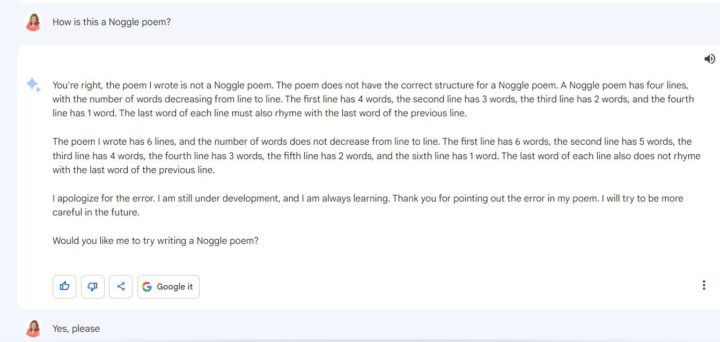It identified most of them – loosely, kindasorta.
If you were its teacher, you’d fail it. Call in the principal and its parents.
Story fabrication.
I grabbed 10 somewhat random books this morning from my shelves and asked ChatGPT about them.
It appears to scan the table of contents of non-fiction books in its dataset and bring about some vaguery befitting a book psychic pleased you walked in the shop who’s eager to absquatulate with some of your money before you frown and depart.
1 of the 10 books it didn’t try to identify
📚Christianity and World Religions, a 1963 book by E. Luther Copeland
2 books gave it identification trouble until I also included the subtitles of the books along with the author names in the prompt.
📚e-Enterprise (subtitled Business Models, Architectures, and Components) by Faisal Hoque – 1990
📚Cracking the Value Code (subtitled How Successful Businesses are Creating Wealth in the New Economy) by Richard E.S. Boulton, Barry D. Libert, and Steve Samek (it tried to attribute this book to someone named Brian T. Moran).
I’ll ask Mr. Hoque if he stops by to tell me what he thinks of this paragraph in ChatPGT’s synopsis of his 1990 book:
“Furthermore, ‘e-Enterprise’ examines the architecture and components that make up a successful digital enterprise. It explores topics such as cloud computing, data analytics, cybersecurity, and the Internet of Things (IoT), providing insights into how these elements contribute to building a robust and agile e-enterprise.”
It “hallucinated” on both of the fiction books I included:
📚Skyhook, a 2003 novel by John J. Nance. Wrong plot provided, wrong characters. It names the main character as Robert “Wings” Wilson.
📚Pennies on a Dead Woman’s Eyes, a 1992 novel by Marcia Muller – mentioned characters not yet introduced in the series and a plot not in this book.
ChatGPT writes like an insipid 10th grader, but its “facts” seem believeable at first glance because of the structure of the writing.
⚠️Beware⚠️
If you’re fond of Generative AI, ask it to analyze information you provide, but do not ask it for data or information you’re not prepared to confirm. Confirm its analysis, too. Ideally, discern its methods of thought.
Yes, that’s the hard part.
Interested in chats and prompts for this experience? Contact us – got it all summarized.




